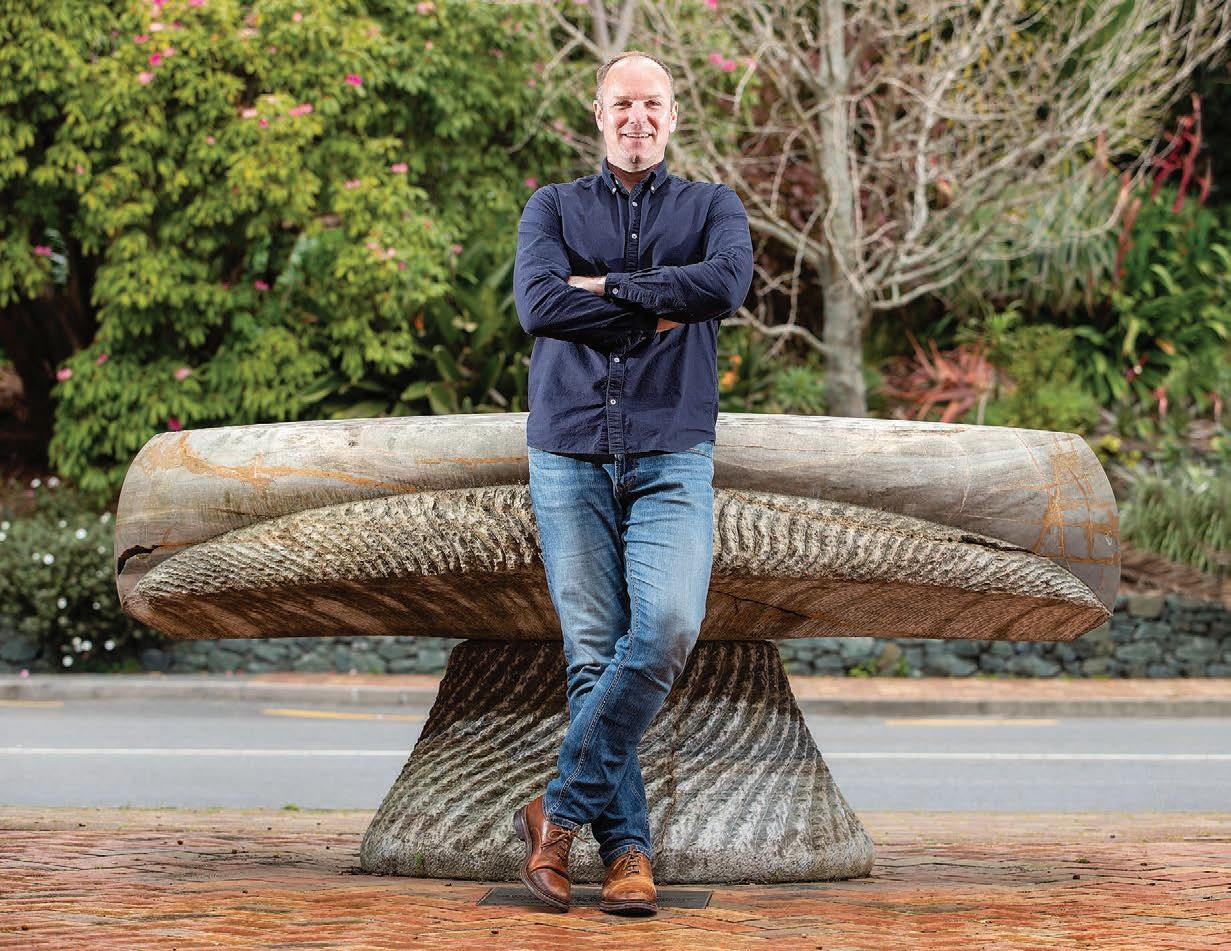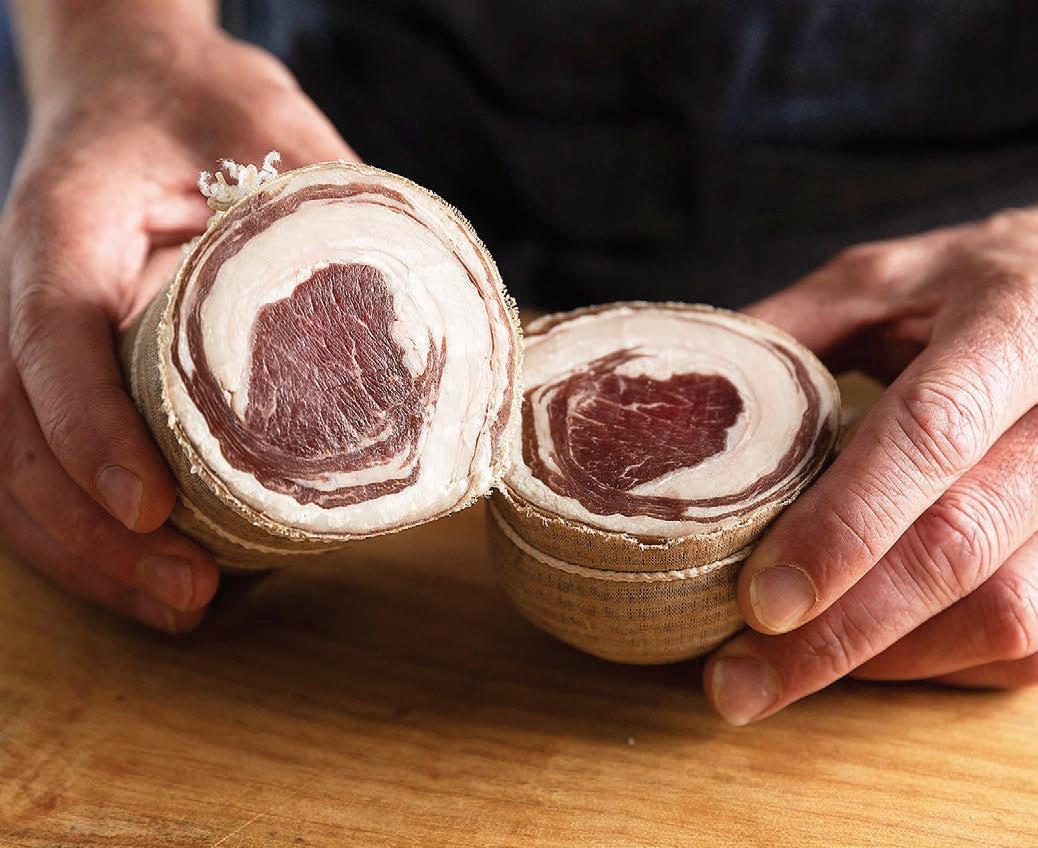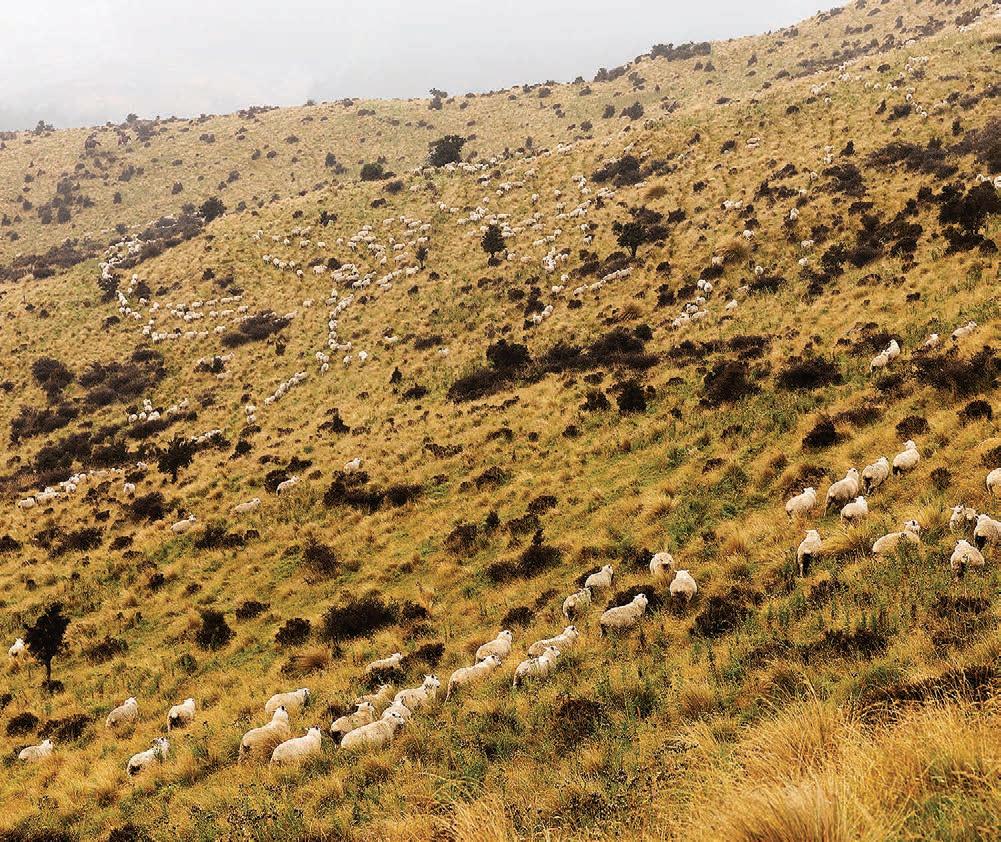
4 minute read
People
Fresh impetus for Headwaters
Since 2006 a small innovative livestock breeding company has been beavering away establishing itself. Now a new cornerstone shareholder and management have given Headwaters a boost. Neal Wallace meets new manager Tom Saunders.
HEADWATERS, built on the collaboration of farmers breeding lambs with high fat levels for consumption in the world’s finest restaurants, has a new majority shareholder in Lone Star Farms and a new general manager in Tim Saunders.
The number of lambs that meet its breeding specifications – and can therefore be marketed under the Lumina brand – has doubled from 50,000 in 2020-21 to 100,000 last year. Headwaters is looking to add 100,000 lambs a year and to ultimately hit one million.
Headwaters was formed in 2006 to breed ewes with high levels of desirable fat that is passed on to lambs. The resulting fat and texture enhances the dining experience.
Through a Primary Growth Partnership, the Omega Lamb Project, as it was initially called, had established links between long-chain Omega-3 fatty acids, desirable polyunsaturated fats and low pH that enhance taste, succulence and cooking consistency.
The project found that these fat attributes are highly heritable and also aid ewe resilience.
Saunders says Headwaters links farmers to that science and genetics to sustainably breed lamb that is desired by consumers.
“Our farmers are not one part of the value chain, they deserve to be part of all of it,” Saunders says.
“We see them as integral all the way through, with skin in the game, and a decent profit share.”
Headwaters is a grouping of about 50 farmers, mainly in the South Island, who predominantly run breeding and finishing operations.
The farms involved in the project source their rams from centralised breeding groups.
Through a joint venture with the Alliance Group, the Lumina lamb offspring are marketed to leading restaurants in New Zealand, London, Italy, Las Vegas, Vancouver, China, a famous Hollywood hangout in Palm Springs, Melvyn’s, and the Burj Khalifa in Dubai.
Saunders says the fact that Lone Star Farms has come on board as cornerstone shareholder, the appointment of Richard Green as chair and the appointment of new staff all signal an intent to grow the business.
He describes Headwaters as a community of like-minded sheep farmers who share data and information for the wider good, for which they receive a premium over the schedule price.
This has increased by a third in recent years.
To qualify, farmers must meet supply requirements, such as breeding programmes and being accredited to the Farm Assurance Programme-Plus.
Saunders sees this model of tailoring product to specific markets as the future for NZ meat exports, effectively allowing farmers to earn more off less.
“Our farmers need to be earning more money off less, so we have to be supplying premium markets but that needs to be at scale.”
Small niche markets are not going to generate the income and value that is required, and markets need constant supply.
Chefs change menus two or three times a year, so NZ lamb has to be always present or it could be dropped, Saunders says.
Saunders says they are seeking to add about 20 to 30 new suppliers each year, farmers who are prepared to meet the company’s exacting supply agreements.
“For Headwaters, the focus is not only on sourcing and supplying a unique product.
“We want to grow a community of progressive farmers that are connected to what happens to their lambs beyond the farmgate, and care.”
That involves farmers and chefs meeting to discuss their respective roles and needs.
Saunders joined Headwaters about a year ago, having held a senior management role for three years at the Māori food and beverage company Kono and then Lone Star Farms, which has six farms in the South Island covering over 13,000 ha.
Initially he was the operations manager for Headwaters but stepped into his current role in July last year.
Born and raised in Wellington, Saunders spent time in Marlborough when he was young. He was introduced to the primary sector there, working on vineyards and on sheep and beef farms.
He graduated from Massey University with an applied science agribusiness degree and worked in the wine industry and as a senior relationship manager for commercial and agri clients at ANZ before moving into the agrifood sector.
Saunders spent time in London, where he became frustrated seeing product, carefully grown and nurtured by producers, lose ownership and control to marketers.
He subsequently witnessed the impact of disrupters to traditional supply models and the need to become aware of threats before they arrive.
Saunders says while Headwaters’ focus is on lamb, it could expand to beef and venison bred for the same healthy fat attributes and also supplied to the finest restaurants around the world.
GROWTH PHASE: Headwaters manager Tim Saunders is overseeing a push for growth at the breeding and finishing company. Photo: Tim Cuff
Tim Saunders Headwaters





